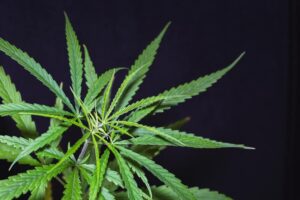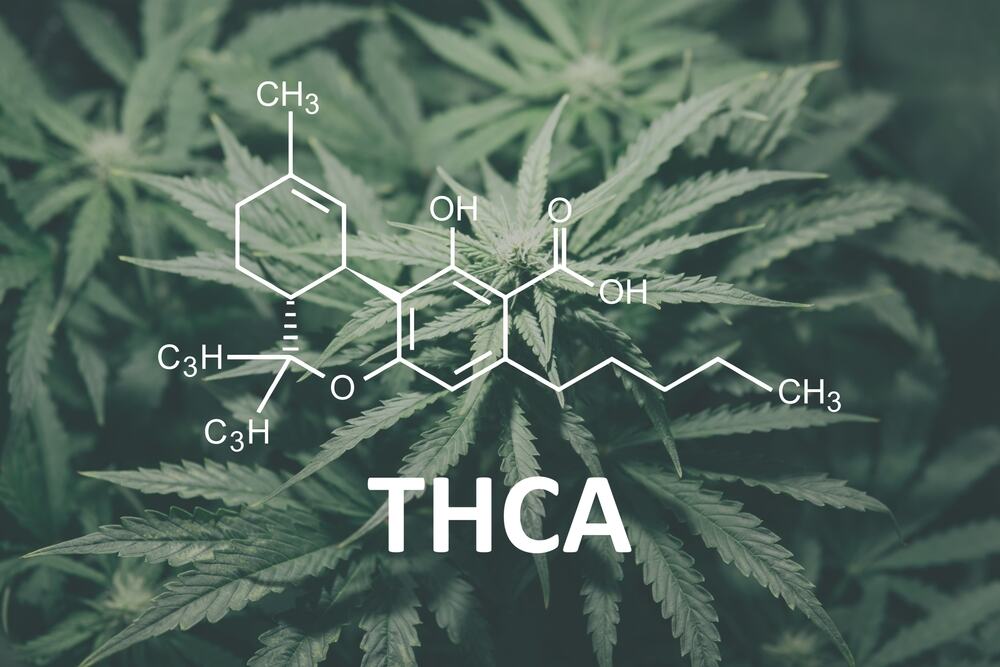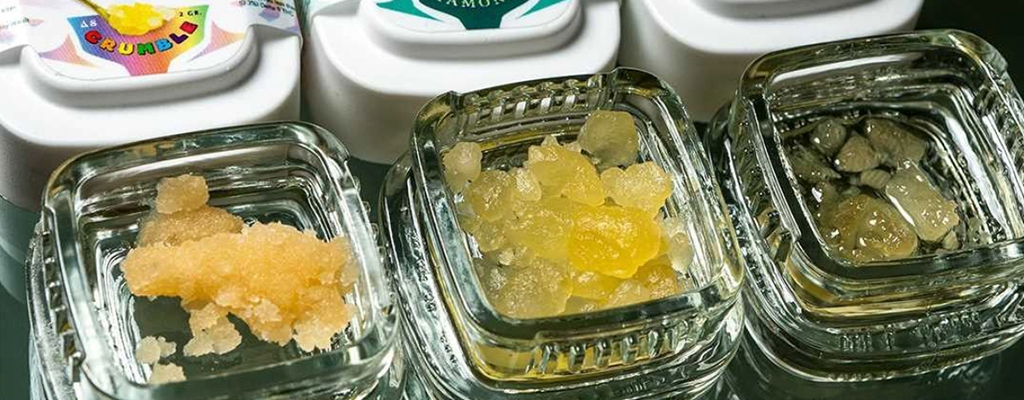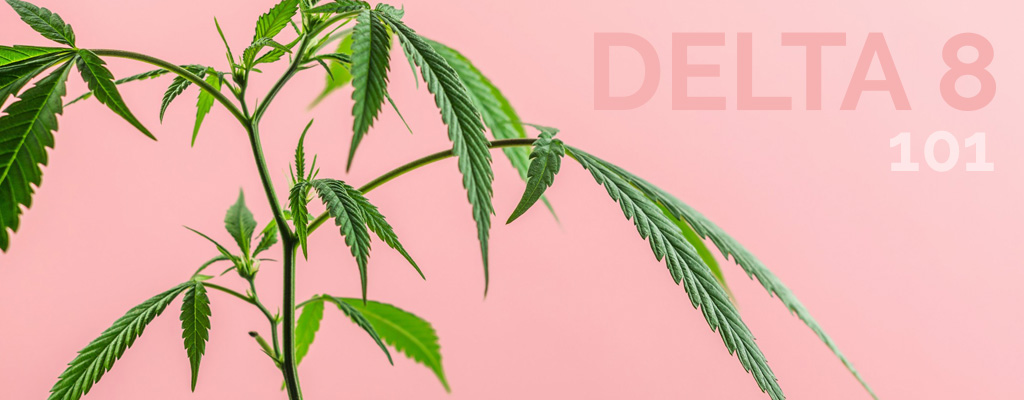TL;DR: This blog outlines the distinctions and similarities between THC and THCA, two important cannabinoids.
- THC (Delta 9 THC): Psychoactive compound found in cannabis, responsible for mood elevation and perception changes.
- THCA: Non-psychoactive precursor to THC in hemp and cannabis. Converts to THC through drying or heating processes.
- Differences: THC is psychoactive, providing a high; heated THCA provides the same effects. Raw THCA is not psychoactive but may offer health benefits like pain and inflammation relief.
- Consumption: While THC is usually consumed for its psychoactive effects, raw THCA is used for its potential health benefits without altering the mind.
THC, more specifically Delta 9 THC, is one of many cannabinoids that occur naturally and can be created in lab settings. Delta 9 THC is best known as the major cannabinoid in cannabis.
THCA is closely related to Delta 9. It is a precursor to Delta 9 THC and closely related to it, but has some major differences as well. We’ll explain this in more detail later on in this article.
So, what’s the difference between THC and THCA? Keep reading to learn more about these two cannabinoids, with a focus on their key similarities and differences.
What Are THC and THCA?
The Basics of Delta 9 THC
Delta 9 THC is a cannabinoid found in hemp and cannabis plants. It’s the specific chemical that comes up in casual conversations about using recreational cannabis.
When people talk about enjoying cannabis flower, vapes, or edibles, many of the effects they enjoy come from Delta 9. An elevated mood and altered sense of perception are among the most commonly reported effects of this cannabinoid.
Delta 9 remains illegal on the federal level. However, the AP reports that the US Drug Enforcement Administration recently rescheduled Delta 9 derived from cannabis. Delta 9 is legal on a state-by-state basis, either medically or for both medical and recreational use.
It’s important to note that Delta 9 can be derived from hemp plants as well. This process usually involves taking a more prevalent cannabinoid found in hemp, like CBD, and chemically converting it to Delta 9.
When derived from hemp, Delta 9 is treated like any other cannabinoid in that category. It is federally legal as long as it comes from a plant containing no more than 0.3% THC by dry weight, thanks to the 2018 Farm Bill. That means it can be shipped across state lines and purchased in states where cannabis remains illegal.
It’s important to note that some states restrict or prohibit the sale and possession of hemp-derived cannabinoids. We always recommend checking on local laws before making a purchase.
The Basics of THC
THCA is perhaps most easily understood as the chemical that eventually becomes Delta 9 THC. Live cannabis and hemp plants produce THCA as they grow and mature.
So, what’s the difference between THC and THCA? They can be seen as different forms of the same substance in the big picture. However, in nature, THCA always comes first — it’s the precursor to Delta 9 THC.
THCA becomes THC through some simple processes. Drying hemp or cannabis plants helps to change THCA into THC. This is why the drying phase is so important when growing and processing cannabis for eventual use.
Heating THCA, for example by smoking or vaping material containing it, makes it turn into THC. Cooking, such as baking, is another way to convert THCA into THC.
THCA is not psychoactive by itself, in its original form. It doesn’t lead to an altered state of mind, intoxicating effects, or a high. However, THCA is thought to have potential benefits. Leafly explains that, while more research is needed, some users believe THCA can help address certain kinds of pain and inflammation.
When extracted from cannabis plants, THCA is federally illegal and legal on a state-by-state basis. THCA derived from hemp, meanwhile, is federally legal. However, some states restrict its sale and possession.
The Relationship Between Delta 9 THC and THCA
 We know that these two chemicals are closely related, although key contrasts exist between them. As a reminder, the biggest difference between THCA and THC is that THC is psychoactive, while THCA is not.
We know that these two chemicals are closely related, although key contrasts exist between them. As a reminder, the biggest difference between THCA and THC is that THC is psychoactive, while THCA is not.
However, the common ways in which people consume cannabinoids make this distinction less applicable in practice. In other words, because cannabinoids are normally consumed and/or prepared in a way that exposes them to heat and drying, THCA generally becomes THC at some point before it enters the body.
Yet, it is possible to consume THCA in a way that doesn’t convert that chemical into THC. For example, juicing fresh cannabis plants without using heat to process them creates a liquid that will likely contain much more THCA than THC.
THCA powders, tinctures, and similar products have also started to gain a foothold in the federally legal cannabinoid industry. These products also deliver THCA in a format that can be consumed without heating or drying.
In these cases, users are looking for functional benefits as opposed to a relaxing or social change to their state of mind. We noted earlier that THCA may have beneficial properties related to inflammation and pain. Additionally, it may have neuroprotective benefits and reduce nausea, among other advantages.
Some users report positive results from using THCA. Additionally, this chemical does not alter a user’s state of mind or make them unfit for activities like driving or using heavy machinery. And, TCHA is generally well tolerated by most users.
For those reasons, inactivated, unheated, and undried THCA has a distinct place in the cannabinoid market that’s separate from Delta 9 THC and similar psychoactive cannabinoids.
There is a clear relationship between THCA and THC, as well as a set of use cases where THCA is used for different reasons than THC.
Let’s sum up the differences between THCA and THC:
- THCA has a distinct chemical structure as compared to THC. However, heating or drying THCA changes it into THC, and the two chemicals are closely related overall.
- THC is ready to be consumed, with the intent of providing psychoactive effects. THCA must be heated or dried before it provides those effects. However, many common methods of using cannabinoids involve heating or drying.
- THC is generally used recreationally, although there are proven medical applications as well. THCA can be used recreationally when heated or dried first. THCA consumed raw is almost always used for functional benefits related to health and wellness.
THCA and So Much More at Delta 8 Resellers
Delta 8 Resellers brings you TCHA and a wide range of other hemp-derived cannabinoids from the best brands in the industry. Whenever available, we share the results of independent lab testing for our products, helping you check out their quality and purity for yourself.



